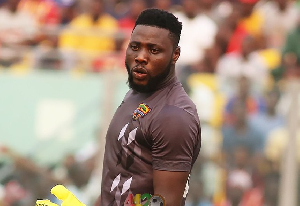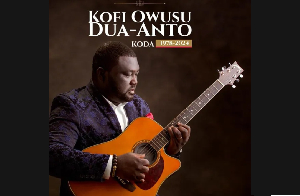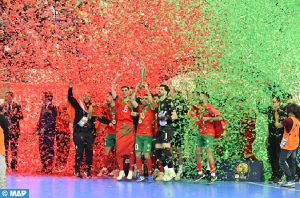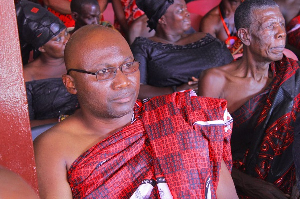Opinions of Monday, 12 September 2011
Columnist: Asare, Kwaku S.
Why President Mills will be a one-term President
S. Kwaku Asare
President John Evans Atta Mills has already made history by being the first president to face a primary challenge. It is becoming increasingly likely that he will also become the first one-term president. When he finally becomes a one-term president, the political historians will propound various theories to explain his defeat. I want to go on record as one of those who not only saw the president’s imminent defeat but also put forth seven (7) drivers of the prognosis.
First, the president misunderstood or overestimated his mandate. He lost the first round of the 2008 election by almost 2 points and managed to win the second round by a hair. Such an electoral outcome calls for governing by consensus and from the center. Although the President’s pledge of “being a father of all the nation,” suggested that he appreciated the importance of not overreaching, his actions have been overly divisive, effectively undermining his pledge. His early years focused on confiscating cars, passports, toilets, etc., in most cases, without following due process, which predictably were reversed by the judiciary. The insults from the Castle directed at former President Kuffuor, the botched attempts to silence Dakwa and Kumah, the incompetent and partisan attempt to prosecute Kwadwo Mpiani and Wereko Brobbey, the prosecution of Mrs. Asamoah Boateng for “intimidating” a BNI officer, who had illegally taken her passport, etc. are examples of actions that should have been avoided if the President understood that the other side won half of the votes. In so doing, the President not alienated independent voters but united the opposition.
Second, the President abused the appointment power. A President sends the nation a signal from the people that he surrounds himself with. The old adage, “show me your friends and I will tell you your character” is relevant here. Many, if not most, observers were surprised by the quality of the team chosen by the President. The team comprised ex-convicts, employees dismissed for using foul language on the air, and several others who could not even put together a proper resume. The parliamentary vetting proved to be an embarrassment, not only for the appointees, but also for supporters of the president. Even senior members of the President’s own party were disappointed by the team, which they described as Team B. It has since emerged that Asiedu Nketiah and Bagbin were so frustrated and disappointed that they took their complaints to the USA embassy, an action that is probably unlawful, although one could not count on the President to enforce the laws.
Third, the President comes across as not being in charge of his team. Every minister appears to be a free agent, pursuing her own policies. Hannah Tetteh tells US officials that the Speaker was chosen because of her malleability. Mahama Ayariga complains to US officials that there is in-fighting at the Castle. Al Bagbin complains to US officials about the quality of the President’s team. These are public officials who have taken an oath of secrecy. While violation of the oath of secrecy is a very serious crime, these public officers continue to be on public payroll and continue to advice the President. The President’s failure to act swiftly and decisively in the face of such gross insubordination and high crimes cements the perception that he is either very weak or not aware of what is going on.
Fourth, subsequent events have cast the President as a hypocrite who says one thing while doing something else. When the President preaches against the politics of insults, he unleashes his ministers to insult nurses, rural folks, former presidents, other presidential candidates, etc. When the President preaches about equality of all before the law, he sends his security service to go after Darkwa, Kumah and Amina while cuddling his ministers who have arguably committed treason, by leaking high- level government discussions to foreign agents. It turns out that the President knew or should have known that his campaign was deliberately and dangerously using religion to drive a wedge between Ghanaians (see Fiifi Kwetey’s revelation of the party’s anti-muslim propaganda). And more shockingly, the President apparently had expressed his fear of “the great ashanti project,” an incendiary remark that has not received the attention that it deserves.
The President’s hypocrisy is also evident in his policies. While he led his party to oppose the acquisition of 2 planes for the military, on grounds that the country had other priorities, he recently acquired 5 planes for the same purpose at a time that the country’s economic circumstances had not changed or even worsened. While he led his party to accuse President Kuffuor of nepotism, the President’s brother, Cadman Mills, and closest friends, Ato Ahwoi and Sipa Yankey, seem to be in the middle of every lucrative gas contract.
Fifth, the President has failed to chalk a major policy victory, something that can become a signature issue. Kuffuor got creditors to forgive $6 billion in debt. In addition, he had NHIS, capitation grants, repeal of criminal libel. Dr. Nkrumah had the Akosombo Dam and numerous projects to his credit. Dr. Busia had his sewage plan and rural development. Acheampong had operation feed yourself, etc. But President Mills has no big project to his credit. A traffic light commissioned at Pankesese; sod cut to build a 2-classroom unit, etc. These are minor accomplishments that, under normal circumstances, are best left for the DCE.
Sixth, the numbers do not favor the President. All our presidents, without exception, get a smaller percentage of the votes when they are up for re-election than they did when they won. This is not too surprising. Our Presidents over-promise and end up disappointing. But while Kuffuor lost several points in his re-election bid, he was not tied when he first won in 2000. President Mills got a hair over 50 percent when he won in 2008. His numbers will go down, probably at a higher rate than Kuffuor’s numbers. That spells doom.
Seventh, the President, unlike his predecessors, will face an opponent who won about 50 percent of the votes in 2008. This is a very formidable opposition, even if the President had an “A” team and was on top of his game. Here, however, we have a president with a “B” Team, who is not charge of his Team, who has alienated many independent voters with his hypocrisy, excessive partisan and pettiness.
When you couple all the above with gigantic failures, such as the STX, hard to understand transactions, such as the President’s transaction with Regimanuel, and the affluence and opulence being displayed by friends of the President (Giddisu’s $160,000 BMW, Asiedu Nketsia’s Bui projects, etc.), one cannot but come to the prognosis that the President will make history in 2012, by becoming the first one-term President of the 4th Republic of Ghana.












